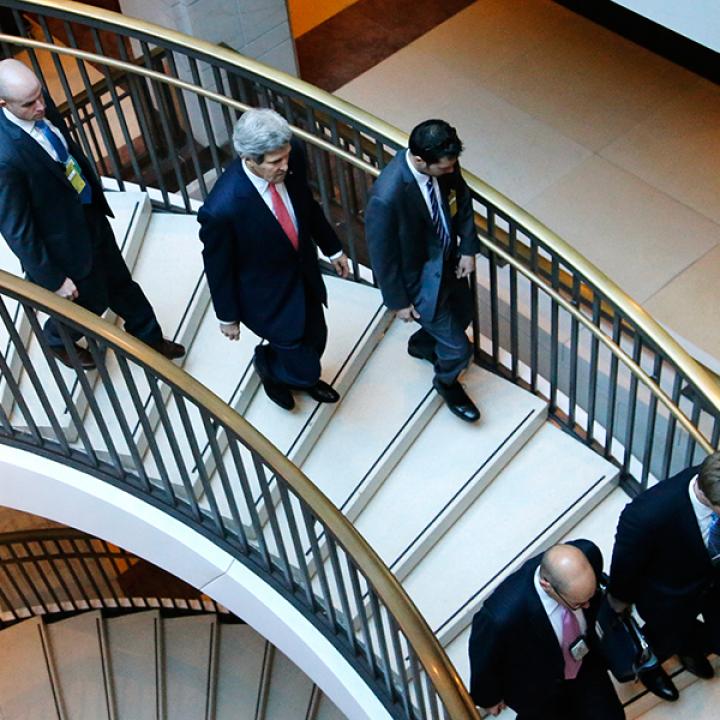

Washington needs to change the negotiating dynamics so that the next round of talks is more successful than the past year's efforts.
In negotiations, agreement is possible if a deal's value exceeds that of each party's best alternative, and if it gains the support of the necessary constituencies on both sides and among other parties with the power to block or bolster it. By these metrics, U.S. diplomacy with Iran is not yet positioned for success. Iran's need for a comprehensive deal with the United States -- a prospect unwelcome amongst Iranian hardliners in any event -- was diminished by the Joint Plan of Action. That agreement provided to Iran nuclear concessions it will seek to pocket even if no subsequent deal is reached, and offered time and space to recover from what had been an accelerating economic decline.
Even as a deal appears less necessary to Iran, the alternatives likely seem less alarming, as both increased sanctions and the "military option" have diminished in credibility. The result is a reduced incentive for Iran to accept a deal, to which the Obama administration has responded by improving the deal's terms in a manner that has alarmed the constituencies -- both Congress and regional allies -- whose support will be necessary for an agreement to succeed.
The question, therefore, is not whether an extension was merited, but how to change the negotiating dynamics so that the next iteration of talks is more successful than the past year's efforts. To this end, President Obama should:
• along with the EU, warn Iran that the concessions in the Joint Plan of Action expire with that agreement, and that no substantive enhancements to the P5+1 offer will be forthcoming;
• communicate more transparently with Congress and allies and find plausible modifications to the U.S. negotiating stance that could assuage their concerns;
• work with Congress to impose sanctions if talks do not succeed by a certain date, improve enforcement of existing sanctions, and devise a mutually agreeable approach to sanctions relief -- and to penalizing Iranian cheating -- if a deal is reached;
• push back on destabilizing Iranian activities in the Middle East.
Michael Singh is the Lane-Swig Senior Fellow and managing director at The Washington Institute. This item originally appeared in Viewpoints no. 67, a publication of the Wilson Center's Middle East Program.
Wilson Center Viewpoints



